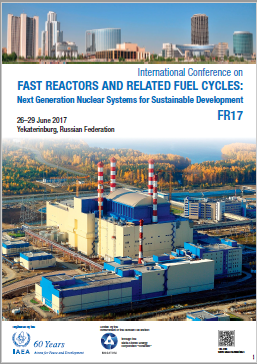Speaker
Dr
Mikołaj Oettingen
(AGH University of Science and Technology, Faculty of Energy and Fuels, Department of Nuclear Energy)
Description
The closed nuclear fuel cycle belongs to the most promising options
for the efficient usage of the nuclear energy resources with the full recycling of the long-lived transuranic elements. However, it can be implemented only in fast breeder reactors of generation IV. The paper shows our methodology applied to the analysis of lead-cooled fast reactor equilibrium fuel cycle with the application of the continuous energy Monte Carlo Burnup code – MCB. The implementation of novel modules for nuclear transmutation trajectories folding, allows us to trace the life cycle of crucial minor actinides from the reactor beginning of life to the state of adiabatic equilibrium. The numerical calculations were performed for the reactor core designed within the European Lead-cooled SYstem (ELSY) project and redefined in the follow-up Lead-cooled European Advanced DEmonstration Reactor (LEADER) project.
Country/Int. Organization
Poland
Author
Dr
Mikołaj Oettingen
(AGH University of Science and Technology, Faculty of Energy and Fuels, Department of Nuclear Energy)
Co-authors
Mr
Grzegorz Kępisty
(AGH University of Science and Technology, Faculty of Energy and Fuels, Department of Nuclear Energy)
Prof.
Jerzy Cetnar
(AGH University of Science and Technology, Faculty of Energy and Fuels, Department of Nuclear Energy)
Mr
Przemysław Stanisz
(AGH University of Science and Technology, Faculty of Energy and Fuels, Department of Nuclear Energy)

